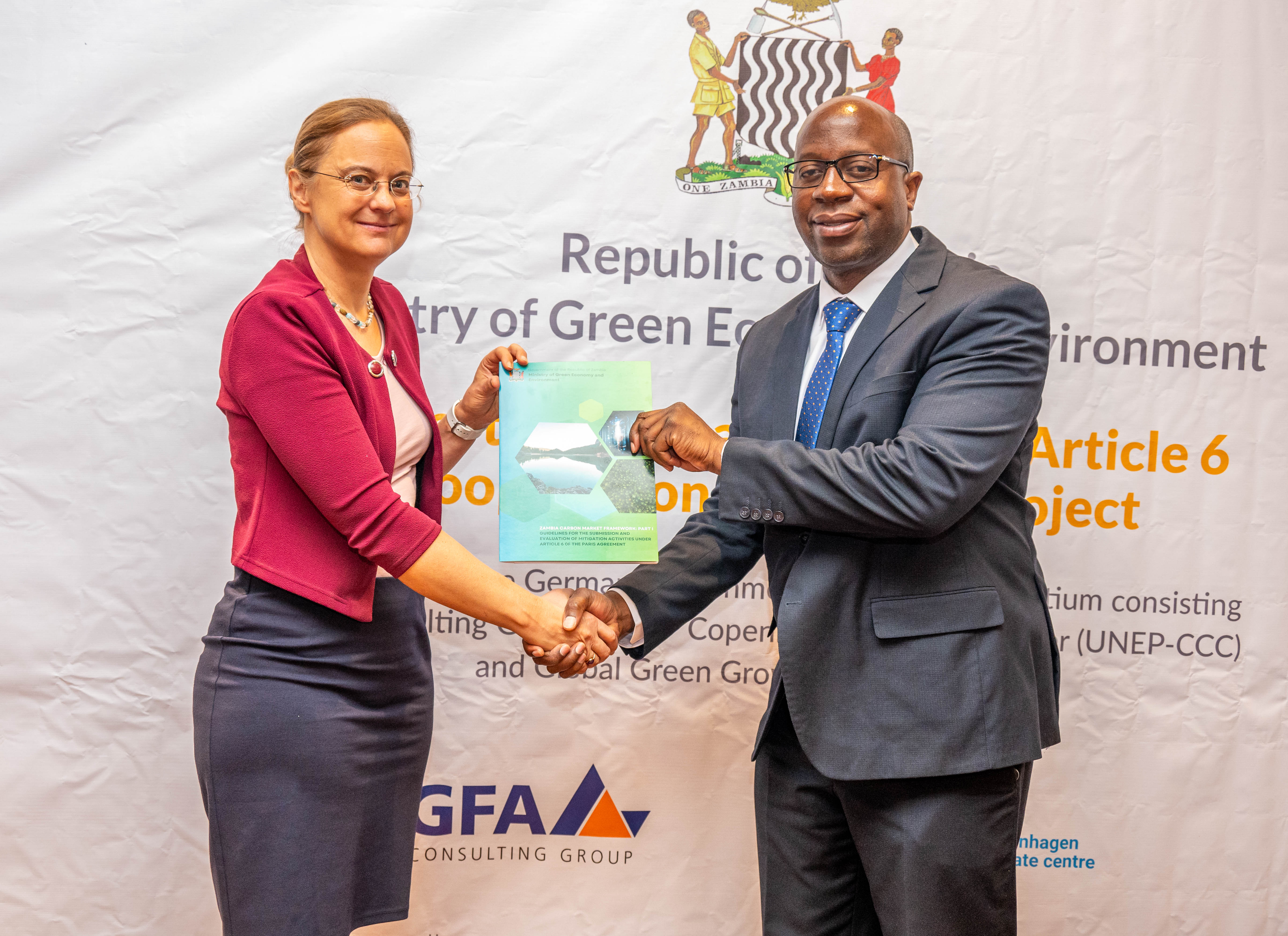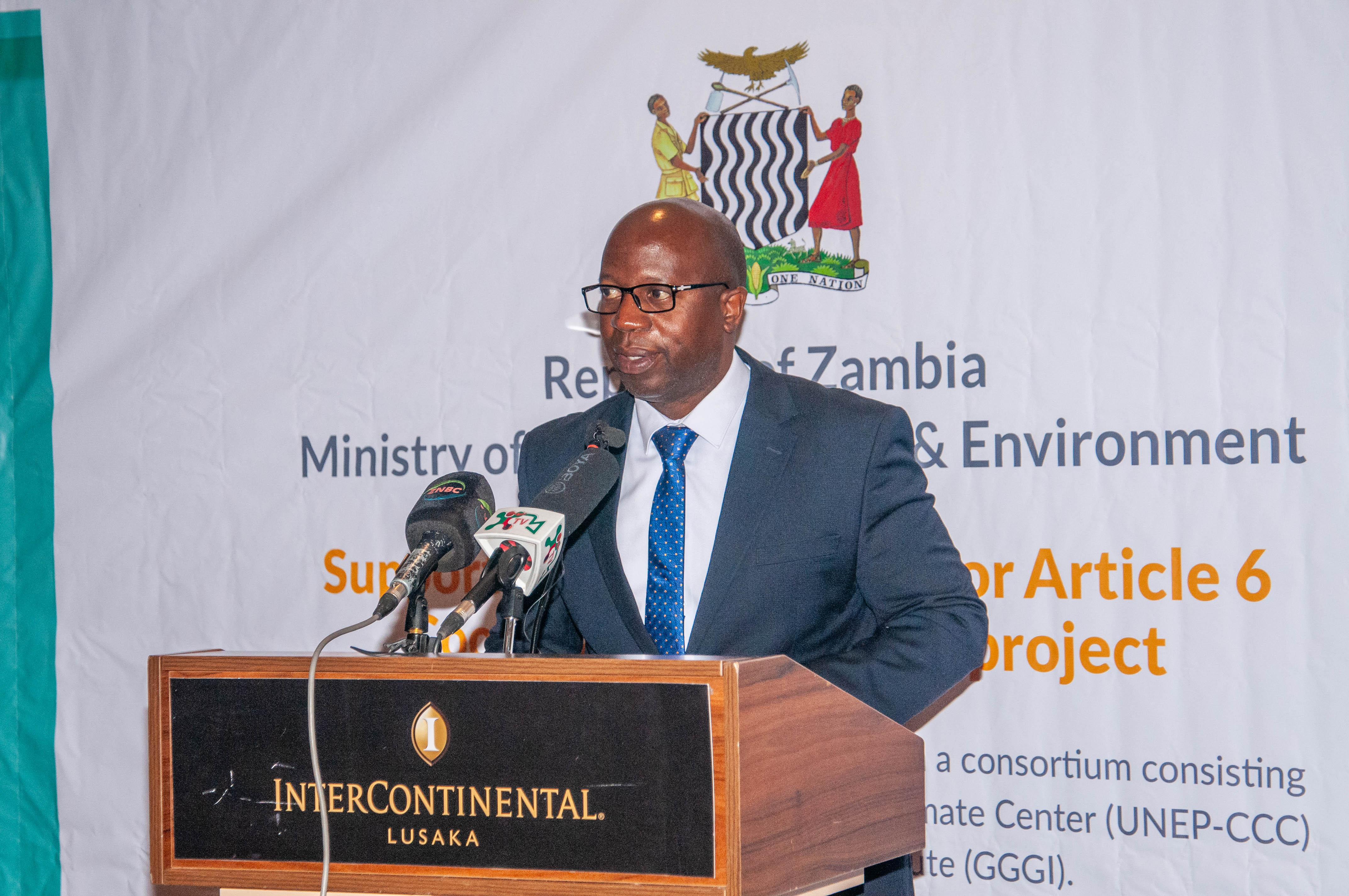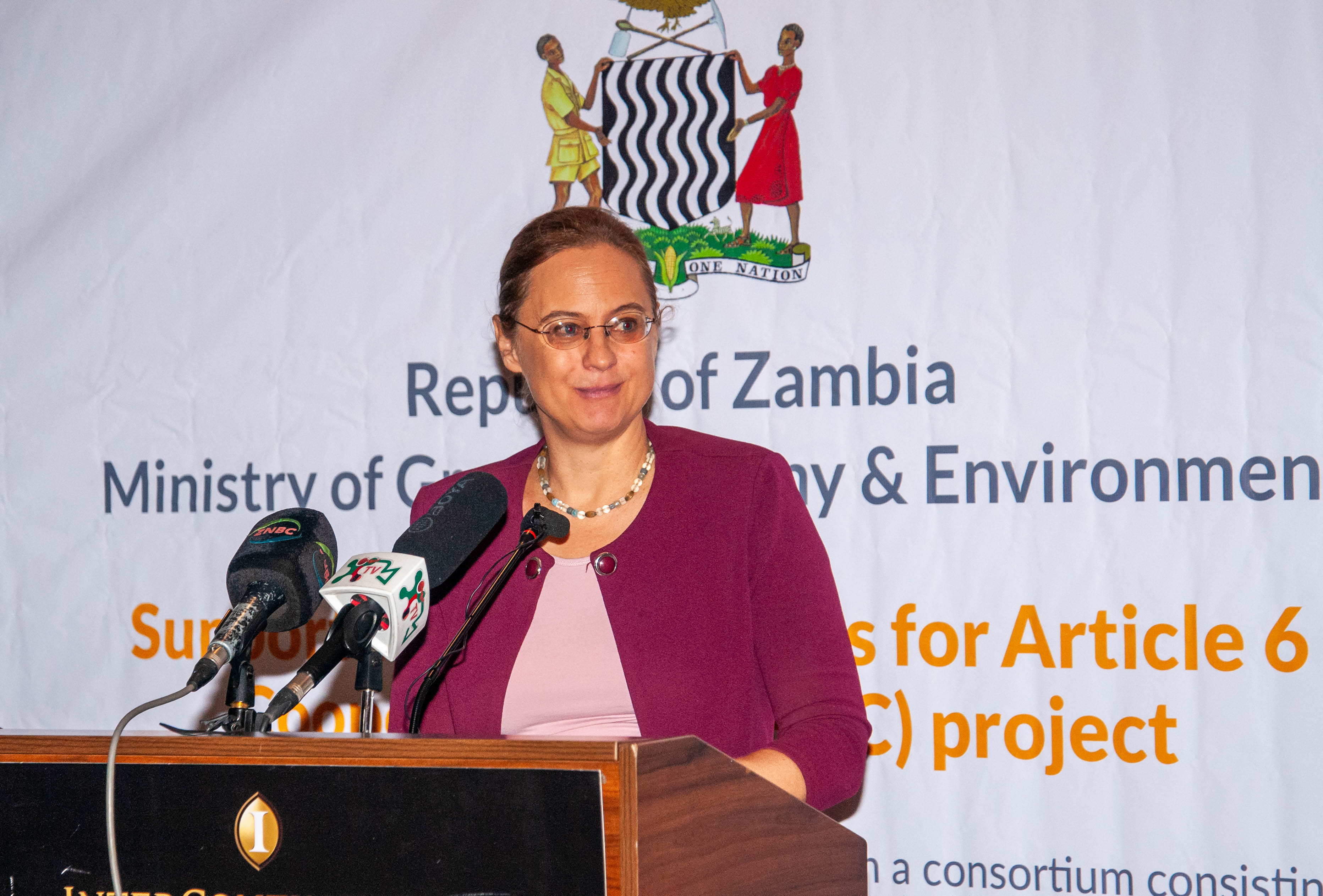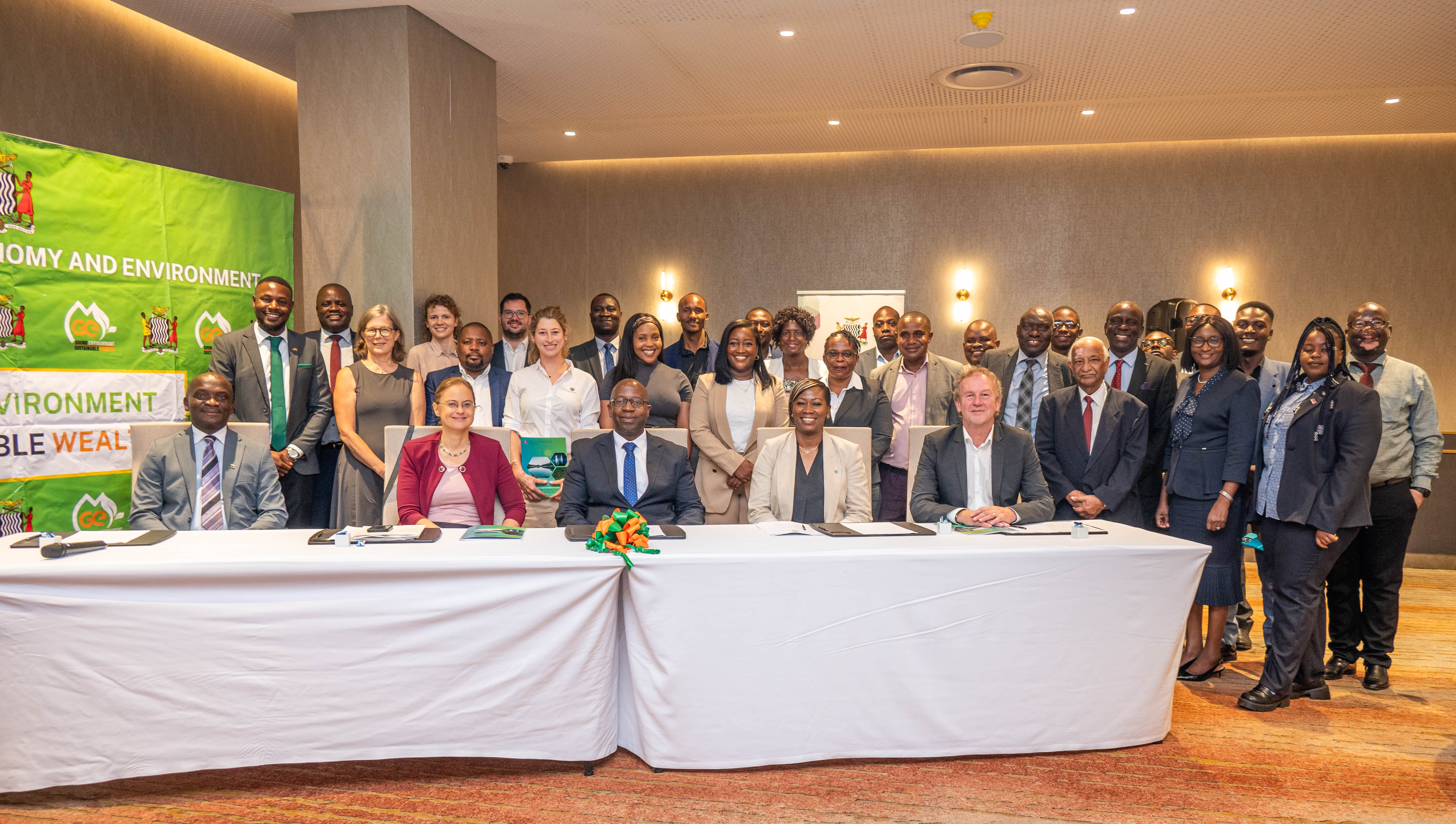The Government of Zambia has approved new eligibility criteria and processes for engaging in international carbon markets under the Paris Agreement Article 6.
The Supporting Preparedness for Article 6 Corporation (SPAR6C) programme, led by the Global Green Growth Institute in partnership with GFA Consulting Group and the UNEP Copenhagen Climate Centre has helped the Ministry for Green Economy and Environment craft these pioneering criteria for eligibility, approval and other complementary processes.
As the first country in the SPAR6C programme to adopt carbon market eligibility criteria, Zambia has not only strengthened its position on the international carbon trading markets but also set a precedent for Africa and the region, serving as a model of the effectiveness of the SPAR6C programme in guiding nations toward their own carbon market readiness.
Zambia hopes to leverage green investment opportunities and stakeholder partnerships within the international carbon markets to help accelerate the achievement of its Nationally Determined Contributions and increase the country’s mitigation ambition.
“Government aims to catalyze public and private sector mitigation activity in Zambia in an attainable and transparent manner by applying the eligibility criteria, streamlined approvals and centralized monitoring, reporting and verification,” Minister of Green Economy and Environment Hon. Eng. Collins Nzovu said in a speech read for him by the Ministry’s Permanent Secretary Dr. Douty Chibamba during the launch.
First Article 6 pilot projects underway
Zambia, through the Ministry of Green Economy and Environment, aims to catalyze private sector mitigation activities by clarifying key components of the decision-making process. With the eligibility criteria and surrounding guidelines, the government aims to create a carbon market that is transparent, transformational and inclusive. It is also in the process of formulating a comprehensive Carbon Market Framework.
Through the SPAR6C programme five Article 6 pilots have been selected in Zambia, out of a potential list of 26 projects, to receive support from SPAR6C for further design and demonstration of investment and opportunities for carbon markets.
One these projects is the Consolidated Farming Limited (Kafue Sugar) Initiative which seeks to produce 40mw electricity from sugar bagasse as a renewable source.
Building capacity to achieve potential
Zambia’s landscape, with approximately 60% forest coverage, holds significant potential for green growth. The Country’s transition to a more diversified approach to carbon credits, including projects in water and land management, as well as renewable energy, signifies its strong commitment to sustainable development.
To support the Zambian government, the SPAR6C programme will undertake the following:
- Support for the implementation of the National monitoring and verification system.
- Medium to long-term emission planning that includes sector baseline studies, training programs, awareness campaigns in collaboration with government, private sector and civil sector players.
- Develop Article 6 opportunities as examples of the effectiveness of the framework.
- Establish a Community of Practice platform for climate mitigation and Article 6 research and knowledge sharing amongst government, private and civil entities (the CoP-ASIC).
The SPAR6C programme in Zambia is funded by the German government -and led by the Global Green Growth Institute in collaboration with consortium partners Carbon Limits, GFA Consulting Group, Kommunalkredit Public Consulting and UNEP Copenhagen Climate Centre.
The overall programme supports stakeholders in Zambia, Colombia, Pakistan and Thailand to engage in carbon transactions under Article 6 of the Paris Agreement. SPAR6C provides decision support to government counterparts, capacity building for private sector and technical assistance to identify and prepare potential mitigation activities.



